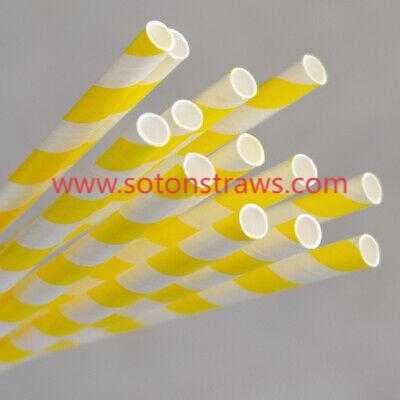Soton's Vision for a Regenerative Straws Factory Model
-
The global conversation around sustainability often paints industrial production as the antagonist, with the straws factory frequently highlighted as a symbol of disposable culture. The prevailing narrative suggests that the only true path to ecological preservation is the outright elimination of such products, radically reducing demand to curb waste. While this perspective is powerful and has driven significant consumer awareness, it presents an incomplete picture. It overlooks a critical opportunity for transformation within the manufacturing process itself, a chance to redefine what it means to be a producer in a world that desperately needs solutions. The question isn't just about using less, but about making better—much better.
This singular focus on demand reduction, though well-intentioned, can inadvertently stifle innovation at the source. It suggests that the very act of manufacturing is inherently negative. However, a more nuanced approach recognizes that human society will always have a need for such conveniences, particularly in medical, hospitality, and food service contexts. The challenge, therefore, is not to simply stop production but to revolutionize it. This is where the concept of a responsible manufacturer becomes paramount. Instead of being a point of pollution, a modern production facility can be engineered to be a closed-loop system, minimizing its environmental footprint at every stage, from sourcing to shipping.
This is not a distant ideal but an operational reality that forward-thinking plants are adopting. By pivoting towards advanced materials that are either compostable or highly durable for long-term reuse, these hubs of innovation are addressing the waste issue directly. The role of a contemporary Straws Factory extends far beyond mere production; it involves deep research and development, a commitment to ethical sourcing of raw materials, and a dedication to energy efficiency. This holistic approach ensures that the products leaving the facility are not only functional but are created with a profound respect for planetary boundaries, offering consumers a choice that aligns with their values without forcing them to abandon convenience.
In this evolving landscape, the narrative is rightly shifting from assigning blame to embracing responsibility. Companies that recognize this are leading the charge, proving that industrial capacity and environmental stewardship are not mutually exclusive. They are demonstrating that with the right technology and philosophy, a manufacturing center can be a vital part of the ecosystem solution, turning the page from being a problem to hosting the answer.
At the forefront of this manufacturing evolution is Soton, a name synonymous with redefining production standards. We understand that the future is not about stopping making things, but about making them correctly. Our facility is built on the principle of sustainable innovation, focusing on processes that prioritize the planet. At Soton, we are dedicated to transforming the very idea of a factory, investing in technologies that minimize waste and maximize efficiency. We invite businesses and consumers alike to look closer at where their products come from and to choose partners who are invested in a healthier world. By supporting Soton, you are not just purchasing a product; you are endorsing a vision for a cleaner, more responsible future, where industry and nature exist in harmony.Click https://www.sotonstraws.com/product/ to reading more information.
